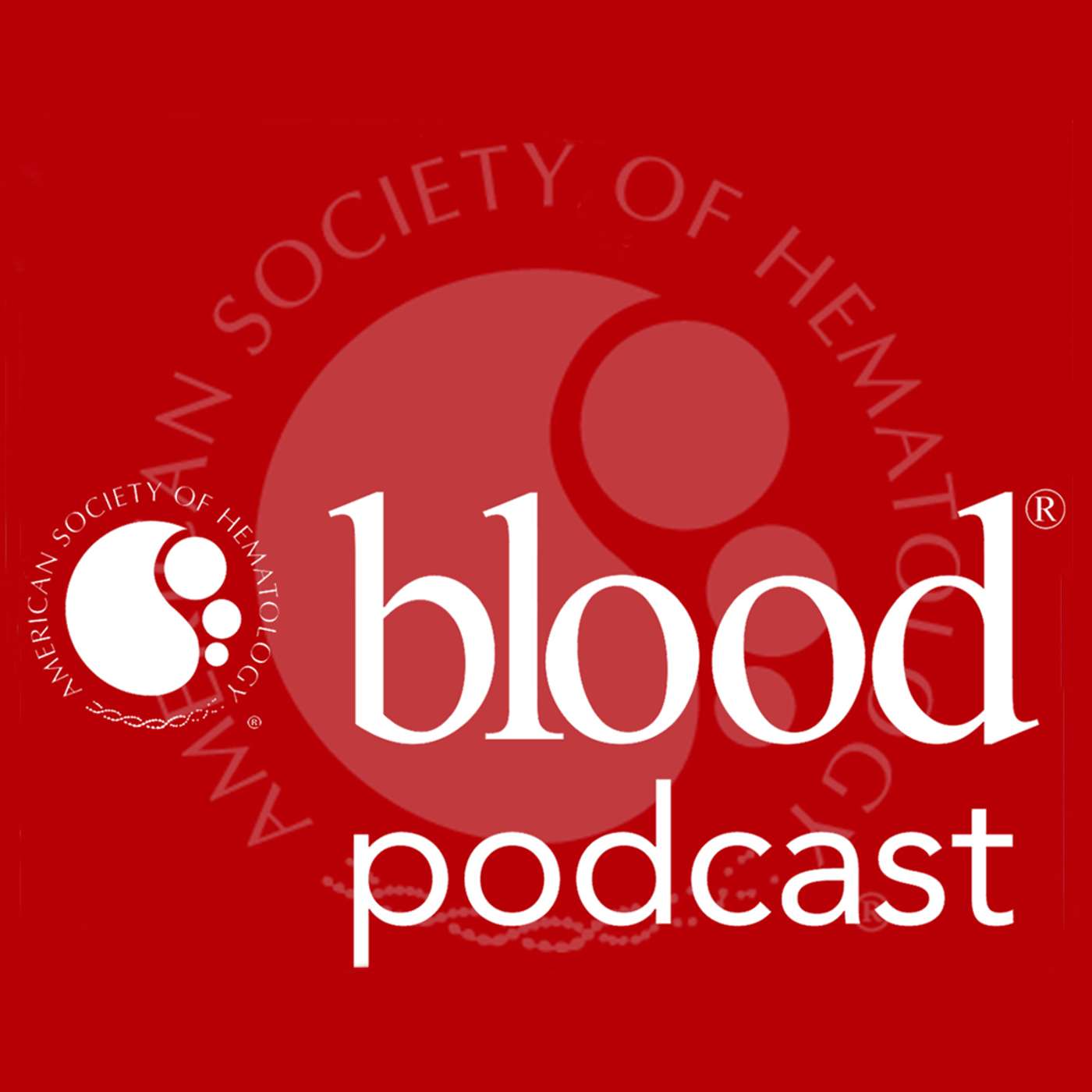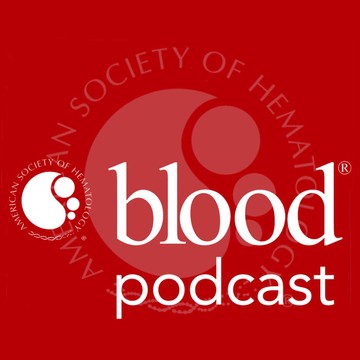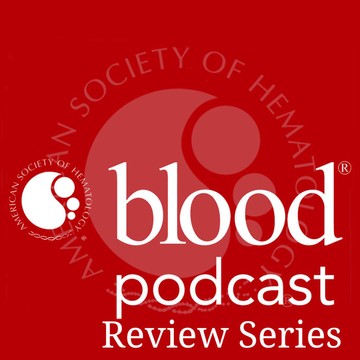

Blood Podcast
American Society of Hematology
The Blood Podcast summarizes content recently published in Blood, the most cited peer-reviewed publication in the field of hematology.
Episodes
Mentioned books

May 18, 2023 • 18min
Specific CD8+ T cell clones in ITP, Refining DLBCL prognosis with the “dark-zone signature”, and rethinking the regenerative role of HSCs in acute hematopoietic emergencies
In this week’s episode, we will review patients with chronic ITP having clonal expansions of a specific subset of CD8 T cells, called terminally differentiated effector memory T cells, or TEMRA. Next, for patients with diffuse large B-cell lymphomas, use of a so-called dark-zone signature, previously referred to as the double-hit signature, could help refine prognosis. Finally on today's podcast we'll discuss rethinking the role of hematopoietic stem cells following physiologic emergencies such as acute inflammation and blood loss.

May 15, 2023 • 30min
Tips for Trainees for a Career in Publishing with Drs. Nancy Berliner and Andrew Roberts
In this special episode, Trainee Council Chairs, Drs. Becky Zon and Ajay Major, interview Dr. Nancy Berliner, Blood Editor-in Chief and Dr. Andrew Roberts, Blood Deputy Editor, on their careers in academic editing and publishing, including career development tips for trainees who are interested in a career in publishing.

May 11, 2023 • 19min
Axi-cel in refractory large B-cell lymphoma, effects of C1 inhibitor deficiency on coagulation, and the evolution of therapy-related myeloid neoplasms
In this week’s episode we’ll report on the findings from a 5-year follow-up study of axicabtagene ciloleucel in refractory large B-cell lymphoma, discuss the role of C1 inhibitor deficiency in coagulation and venous thrombosis, and learn how chemotherapy signatures can be used to track the evolution of therapy-related myeloid neoplasms.

May 4, 2023 • 19min
Gut microbiota and outcomes in DLBCL, NFIA-ETO2 fusion cooperates with TP53 in leukemogenesis, and the impact of nirmatrelvir + ritonavir on CLL patient outcomes during the Omicron surge
In this week’s episode we'll review imbalances in gut microbiota may impact the efficacy and safety of immunochemotherapy in patients with diffuse large B-cell lymphoma. Next, the NFIA-ETO2 fusion, found exclusively in pediatric patients with pure erythroid leukemia, impairs the normal process of erythroid differentiation. Finally, we'll look at the effectiveness of nirmatrelvir plus ritonavir in patients with CLL infected with SARS-CoV-2 during the Omicron surge.

Apr 27, 2023 • 22min
Revised response criteria for high-risk MDS, machine learning guides diagnosis of bone marrow failure syndromes, and RhD-positive transfusions for Asian-type DEL patients with serologic RhD-negative typing
In this week’s episode, we’ll discuss the newly revised International Working Group response criteria for patients with higher-risk MDS, learn more about the utility of machine learning in the differential diagnosis of bone marrow failure, and discuss whether patients with the Asian-type DEL allele, who type as serologic Rh-D-negative, can be safely transfused with RhD-positive blood.

Apr 20, 2023 • 17min
AIHA during pregnancy, rapid immune tolerance induction in severe hemophilia A, and aging changes control of HSC proliferation
In this week’s episode we will review treatment and outcomes for patients with autoimmune hemolytic anemia during pregnancy. Next, rapid immune tolerance induction in patients with hemophilia A and high-titer inhibitors. Finally, researchers compare kinetics and cell cycle progression in hematopoietic stem cells from cord blood, young adults, and aged healthy donors.

Apr 20, 2023 • 23min
Review Series on Classical Myeloproliferative Neoplasms
In this episode Associate Editor, Dr. Mario Cazzola discusses the review series on Classical Myeloproliferative Neoplasms, with authors, Dr. Ann Mullaly and Dr. Alison Moliterno. Review Series on Classical Myeloproliferative Neoplasms

Apr 14, 2023 • 23min
Factor H variants in paroxysmal nocturnal hemoglobinuria, the role of factor XII in SCD-related thrombosis, and clinical features of therapy-related NPM1-mutated AML
In this week’s episode, we’ll learn how rare germline genetic variants in complement factor H (CFH) affect the course of paroxysmal nocturnal hemoglobinuria, discuss the role of coagulation factor XII in thrombotic complications and vaso-occlusion associated with sickle cell disease, and learn more about the overlapping features of therapy-related and de novo NPM1-mutated AML.

11 snips
Apr 6, 2023 • 17min
Lenalidomide and genetic profiling in myeloma, T-cell immunotherapy upregulates AML cell MHC-class II, and young fecal microbiota rejuvenate HSCs
In this week’s episode we will review optimizing the value of post-transplant lenalidomide maintenance in multiple myeloma. Next, T-cell immunotherapies targeting AML antigens upregulate MHC Class II expression on AML cells. Finally, young bugs rejuvenate old blood: transplanting fecal microbiota from younger mice into older mice improved hematopoietic stem cell function and restored lymphoid differentiation potential.

Mar 30, 2023 • 23min
HLA-E-restricted immune response in EBV infection, the role of NRX-0492 in CLL, and NSAIDs for bone marrow failure in Ghosal Hematodiaphyseal Dysplasia
In this week’s episode we’ll learn how HLA-E-restricted immune responses help control Epstein-Barr virus infection, discuss the activity of NRX-0492 in chronic lymphoblastic leukemia, and learn more about the efficacy of non-steroid inflammatory drugs in the treatment of bone marrow failure associated with Ghosal Hematodiaphyseal Dysplasia.


